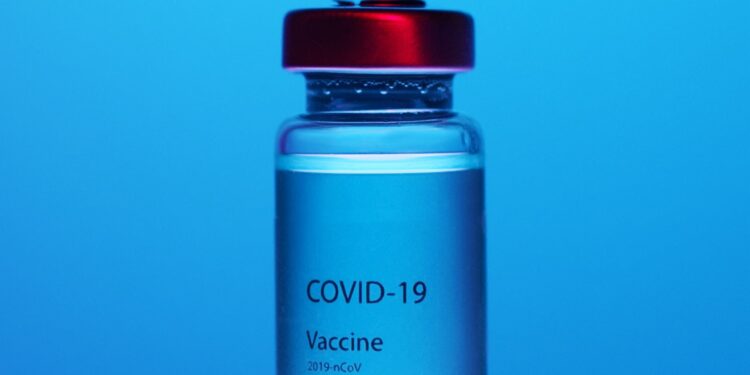Employers grappling with the issue of whether to require their workers to be vaccinated against Covid-19 as well as other infectious diseases may benefit from the process that Houston Methodist, an academic medical center comprising eight hospitals in Houston, used to make that decision.
On March 31, 2021, we mandated that our 26,000 employees, with some exceptions, be vaccinated, making ours the first U.S. hospital system to do so. Soon after, the mandate was extended to 7,500 private-practice physicians with privileges to care for patients at our hospitals.
Prior to our mandate, 84% of Houston Methodist employees had been vaccinated against Covid-19. After the mandate took effect on June 7, we reached 100% compliance among those without a reason to be excused; 285 employees and 108 credentialed private-practice staff received exemptions, and 332 were granted deferrals (2% combined).
After instituting this policy, we were sued by 117 employees who claimed that we could not require immunization as a prerequisite for employment. A federal judge summarily dismissed the lawsuit. He rejected the arguments that the vaccines were experimental and caused harm and said, “It is a choice made to keep staff, patients, and their families safer.”
With our policy having stood this legal test, we believe that other employers can use our process for developing a vaccination policy of their own. It consists of seven steps.
- Establish an ethical framework and hierarchy.
To guide us while making our policies, we defined a “pyramid of responsibility,” with patients and their families at the top, followed by our employees, and the Houston community forming the base. This framework was developed through a scientific and ethical review of Covid-19 vaccine research, which established our institutional responsibility under the precepts of beneficence (a procedure should only be performed with intent of doing good for the patient) and non-maleficence (a procedure should not harm the patient or others in society).
In developing our vaccination policy, we applied these concepts to prioritize the health and safety of all of those under our responsibility, with a focus on avoiding preventable harm. With this expanded approach, we understood patients coming to Houston Methodist expected, and are entitled to, a safe environment for their medical care. Similarly, employees deserve a workplace that actively avoids preventable harms.
We also evaluated how a potential vaccination mandate for our workers would affect vaccine availability for the Houston community. Houston Methodist is a designated State of Texas Covid-19 vaccine hub. This status gave us access to large volumes of vaccines but also conferred on us the responsibility to ensure that vaccines are distributed equitably throughout the community. Distributive justice requires that a vaccination mandate not be implemented until such time that it will not create vaccine shortages for the community. Thus, Houston Methodist could not ethically mandate the vaccine for employees until the vaccine supply could meet that demand.
Finally, we considered how a vaccination mandate would affect our employees’ right to autonomy — their right to make their own decisions without interference from others. In the construct that prioritizes beneficence and non-maleficence, an individual’s right to autonomy ends when his or her actions would harm others. We decided that death from Covid-19, was an irreversible harm, and minimizing nosocomial infections — those occurring within 48 hours of hospital admission, three days of discharge, or 30 days of an operation — were critically important tasks and an additional institutional responsibility.
Evaluating potential vaccination policies under this framework, Houston Methodist determined that a vaccination mandate was the best way to ensure that our employees did not pose harm to patients, other employees, or the Houston community. In building this policy, respect for employee confidentiality and the principle of proportionality (an action should not be more severe than is necessary) were further considered.
- Conduct a risk-benefit analysis compliant with professional standards.
The first step is to conduct a risk-benefit analysis of vaccination versus no vaccination. Critically, this analysis must be performed by subject-matter experts who can accurately assess the situation.
Our risk-benefit analysis asked one question: Do the available vaccines reduce the risk of harm from a Covid-19 infection more than they increase the risk of severe adverse reactions? The vaccines approved under the U.S. Food and Drug Administration’s (FDA’s) emergency use authorization are highly effective.
The Pfizer/BioNTech, Moderna and Johnson & Johnson vaccines are 95%, 94% and 72% effective in preventing symptomatic infection, respectively; all reduce hospitalization and mortality to nearly zero. This is on par with, or better than, many familiar FDA-approved vaccines. They have shown effectiveness against the UK (Alpha, or B.1.17), South African (Beta, or B.1.351), Brazilian (Gamma, or P.1), California (B1.427 and B1.429), and related variants.
Beyond their established effectiveness, these vaccines are incredibly safe. More than 2.1 billion doses have been administered around the world under heavy scrutiny from researchers, governments, and watchdog organizations. One real-world study of 627,383 fully vaccinated individuals reported an even lower rate of side effects than seen in the previous clinical trials, with fewer than one in four experiencing symptoms, most commonly headache, fever, and fatigue. Serious adverse events — those that cause or extend hospitalization or result in persistent disability or death — have been rare.
In contrast, Covid-19 has killed more than 3.9 million people, according to the official tally of the World Health Organization (WHO). (Other estimates are much higher.) Furthermore, as many as one-third of Covid-19 patients experience significant health problems after they’ve had the disease; these include cardiovascular, pulmonary, renal, dermatologic, neurologic, and autoimmune effects. The available Covid-19 vaccines are orders of magnitude safer than an acute or chronic infection or the quality-of-life impact from post-Covid-19 syndrome.
About the authors: Susan M. Miller, MD, is the John S. Dunn, Sr. Research Chair in General Internal Medicine and department chair of family medicine at Houston Methodist Hospital; Robert A. Phillips, MD, is executive vice president and chief physician executive at Houston Methodist; Roberta L. Schwartz is an executive vice president and chief innovation officer at Houston Methodist.
Read the full article here.












